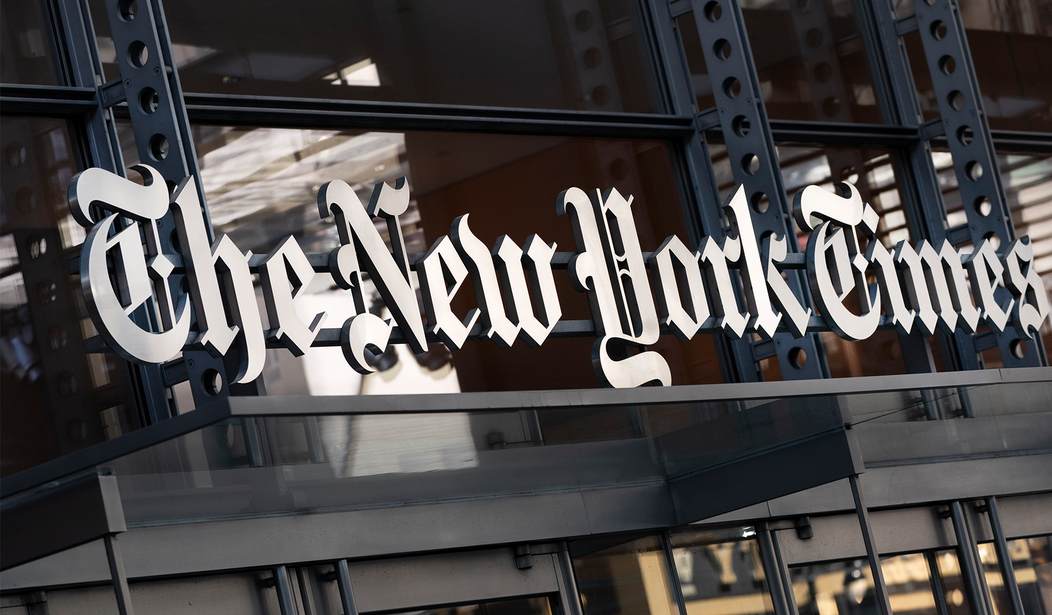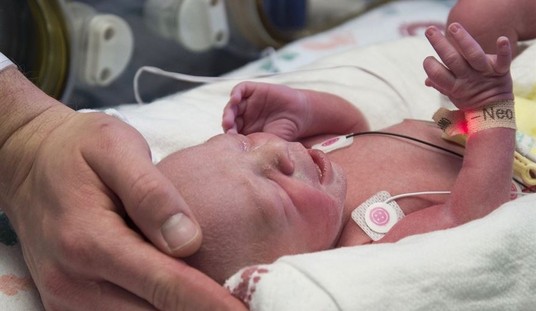Hal Lindsey, the author of the celebrated 1970 book “The Late Great Planet Earth,” died last week at the age of 95, and on Saturday, the New York Times ran a thousand-word obituary about him. Now, Lindsey was an evangelical Christian, a group that the Times regards as a bizarre and benighted tribe to be brought to enlightenment as much as possible and studied by anthropologists inasmuch as they persist in their delusions, so the obit was as tone-deaf and off the mark as we have come to expect when the Times deigns to notice an eminent figure from flyover country.
The Times was actually remarkably gentle about the most striking aspect of Lindsey’s long career: in “The Late Great Planet Earth,” he predicted that the Second Coming of Christ would take place within a generation of the founding of the modern state of Israel. He gave an extremely generous interpretation of the length of a “generation,” making it last forty years, which still would have put the Second Coming, on the outside, around 1988, and should have ended Lindsey’s career by 1989.
Oddly enough, however, this spectacularly widely distributed (“The Late Great Planet Earth,” according to the Times, sold around 35 million copies by 1999) failed prophecy did nothing but make Lindsey a very rich man, and he was still active earlier this year.
Meanwhile, the Times’ potted history of his activities reveals anew its total lack of understanding of how Christian conservatives really think. This is nowhere more evident than when the Paper of Record tells us that “Mr. Lindsey was not a sermonizer who automatically condemned everything about modern America. To mark Memorial Day in 2015, for instance, he urged Americans to ‘give thanks for the hundreds of thousands who sacrificed their lives to safeguard our way of life. We are truly a blessed nation.’”
Now wait a minute. A distaste for the direction of modern America is most decidedly not a rejection of patriotism or a refusal to demonstrate gratitude to those who gave their lives to protect the nation. The Times should know better, but really, is there an area in which that cannot be said?
The worst part of the Times obituary of Hal Lindsey, however, has little or nothing to do with Lindsey himself at all. “Mr. Lindsey,” we’re told, “did not shy from controversy. Several years after the terrorist attacks of Sept. 11, 2001, he came under fire for suggesting that radical Islamist thought springs from the Quran, which he said has numerous passages encouraging violence.”
Imagine writing that in 2024, twenty-three years after 9/11, and after the Fort Hood jihad massacre, and the Boston Marathon jihad bombing, and indeed, after over 46,000 jihad attacks worldwide since the planes hit the Twin Towers. We have since then had Islamic jihadis around the world, including many imams, invoke the Qur’an to justify their acts of violence and to make recruits among peaceful Muslims.
Just weeks ago, in a sermon at the Muslim American Society Staten Island Center, Imam Tareq Allan, spoke of the Qur’an’s teaching on jihad as involving “armed struggle.” Allan said that “believing in the virtues of jihad and reading these hadiths and verses of the Quran is a reward in and of itself, to have that as part of your creed, to know it to be true….It is important that you have this fire in your heart. This willingness to always be willing to give yourself for the sake of Allah. Because if you are not able to perform that armed struggle, you will struggle within your capacity as a Muslim here, living in America, by spreading Islam.” He added: "Allah says [in the Quran]: 'Prepare for your enemies what you can of military strength.'” That’s Qur’an 8:60.
Earlier in October, the Turkish Muslim poet İsmet Özel declared: “Muslims are terrorists. The first duty of Muslims is to be terrorists. Kafirs [infidels] should be afraid of Muslims. If they are not afraid, then a Muslim is not a Muslim.” And in August, Dr. Wasfi Ashour Abu Zeid, a member of the International Union of Muslim Scholars (IUMS) said of the Oct. 7 Hamas massacre of 1,200 Israelis, which Hamas calls the “Al-Aqsa Flood”: “The Al-Aqsa Flood war is pure jihad, not contaminated by anything else... Blood flows and lives are lost, and Allah chooses martyrs. The whole atmosphere is jihad within jihad, and this is what children should be raised on: love of jihad, a yearning for it, and [constant] contemplation of it. Today more than ever before, we desperately need to spread the culture of jihad.”
Related: Jewish Woman Cast as Mary the Mother of Jesus, and the Left Goes Nuts
The Times is no doubt certain, by contrast, that jihad is an interior spiritual struggle, and that Muslims who think otherwise are falling prey to those who have “hijacked” their religion, while non-Muslims such as Hal Lindsey who think this way are just “Islamophobes.” Yet examples of modern-day Muslim authorities extolling the virtues of violent jihad could be multiplied endlessly. If Hal Lindsey was controversial for saying that “radical Islamist thought springs from the Quran,” then also controversial are massive numbers of imams and Islamic teachers around the world.
The Times, in short, is living in the fantasy bubble it constructed after 9/11. Facts and reality need not apply for entry.










